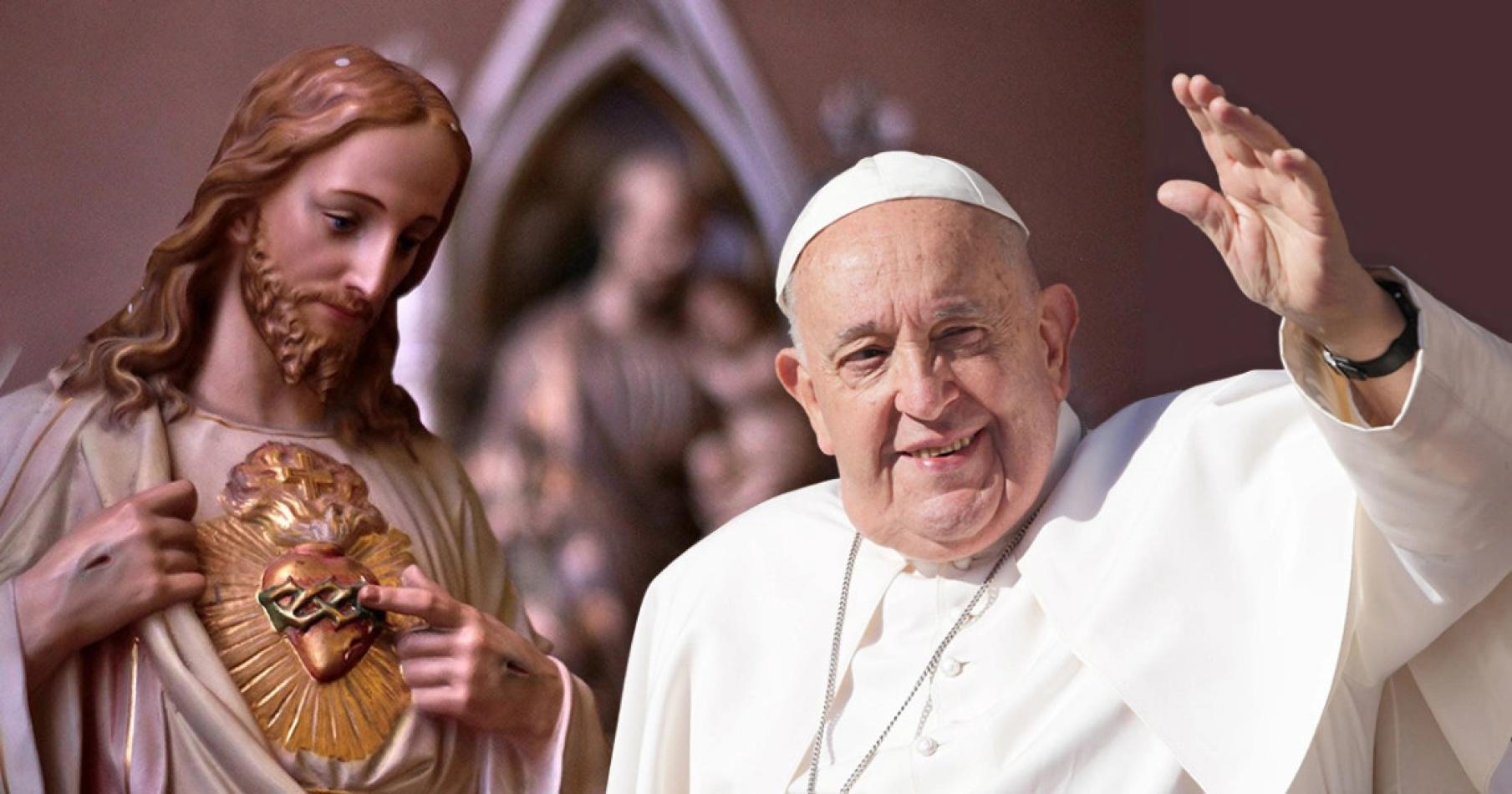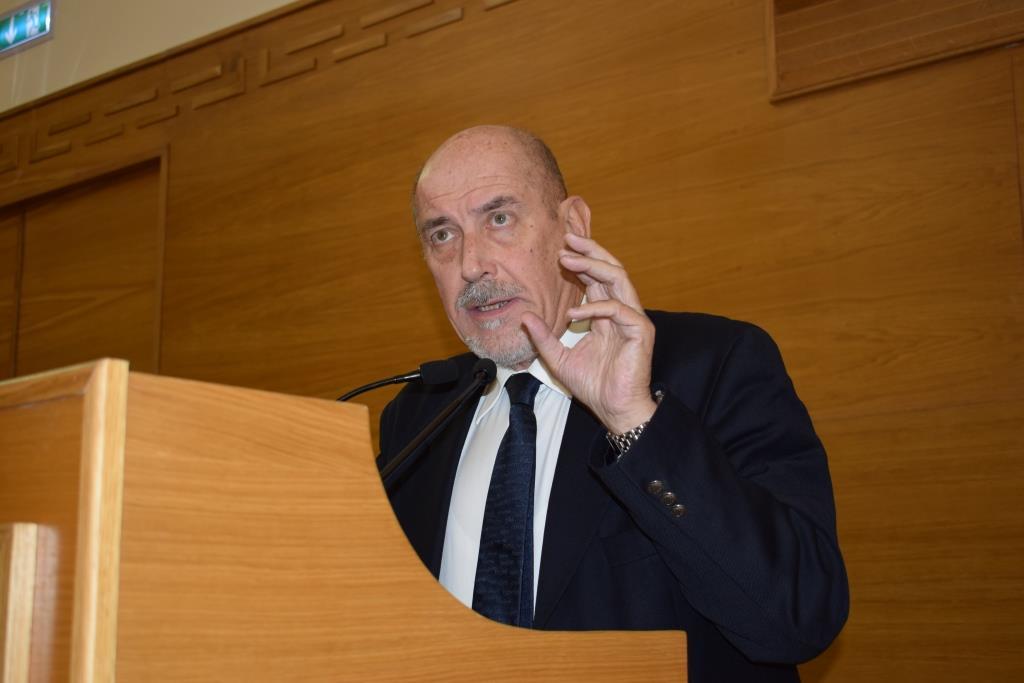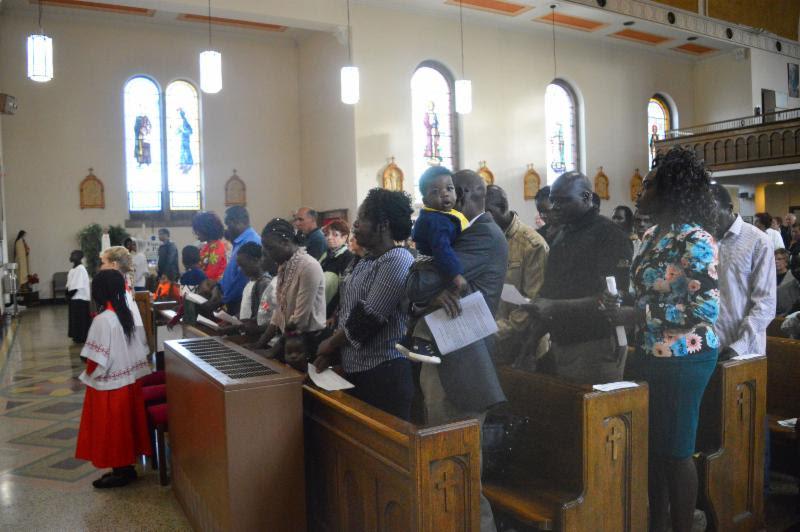Daniel Comboni
Misjonarze Kombonianie
Obszar instytucjonalny
Inne linki
Newsletter
Saturday, October 26, 2024
Pope Francis published on October 24 his fourth encyclical letter (the most relevant papal document) on the human and divine love of the Heart of Jesus Christ. He called it Dilexit nos (He loved us). The title was taken from the Letter to the Romans (8:37). The document is divided into five chapters: 1) The importance of the heart; 2) Actions and words of love; 3) This is the Heart that has loved so greatly; 4) A love that gives itself as drink; 5) Love for love. The Encyclical opens with a very short introduction. It has also its own conclusion. [Credit photo: famvin]
The text is made of 220 paragraphs and 227 footnotes. St Daniel Comboni, the founder of the Comboni Missionaries and Comboni Missionary Sisters, is among the quoted authors together with the MCCJ Rule of Life. The Comboni spiritual patrimony somehow belongs also to the Church’s Magisterium.
“A saintly missionary once said, ‘this divine heart, which let itself be pierced by an enemy’s lance in order to pour forth through that sacred wound the sacraments by which the Church was formed, has never ceased to love’”, the Pope wrote in n. 149 quoting Comboni.
Francis re-proposes the devotion to the human and divine Heart of Jesus – I love the emphasising on the human and divine features – as an answer to a world that lacks heart and poetry. Today’s society is heartless because it is narcissistic, self-centred and artificial. “Poetry and love are necessary to save our humanity” (n. 20), the Pope underlines, while throwing a provocative question: “Do I have a heart?” (n. 23).
LOVE TO CHRIST’S MISSIONARY DIMENSION

In this short text I will reflect on the conclusion of the Encyclical’s last chapter where the Pope explores the missionary dimension of the devotion to the Heart of Jesus under the subtitle “Bringing love to the world” (n’s 205-216), a heading that expresses the essence of mission. Our love for Jesus has got a missionary dimension.
Francis starts by quoting two thoughts of St John Paul II about elements of the devotion to the Heart of Jesus: the reparation to the Heart of Christ “is apostolic cooperation in the salvation of the world” and the consecration to the Heart of Christ is “to be seen in relation to the Church’s missionary activity” (n. 206).
The Pope reminds that the missionary works of the Church expands the fire of love from the Heart of Jesus “which proclaims the message of God’s love revealed in Christ” (n. 207).
“As we contemplate the Sacred Heart, mission becomes a matter of love. For the greatest danger in mission is that, amid all the things we say and do, we fail to bring about a joyful encounter with the love of Christ who embraces us and saves us” (n. 208), warns the Pope.
A mission that is born from the encounter with Jesus’ love “requires missionaries who are themselves in love and who, enthralled by Christ, feel bound to share this love that has changed their lives” (n. 209).
Francis puts forwards a simple missionary strategy: “To be able to speak of Christ, by witness or by word, in such a way that others seek to love him, is the greatest desire of every missionary of souls” (n. 210).
He adverts that the Church does not proselyte, but draws people into the experience of God’s love while respecting freedom and dignity, without impositions, reminding that “Christ asks you never to be ashamed to tell others, with all due discretion and respect, about your friendship with him” (n. 211).
Warning against individualistic intimism, the Pope explains that to communicate Christ it is not a matter between Him and me, but it is always done in communion. “Mission is experienced in fellowship with our communities and with the whole Church. If we turn aside from the community, we will be turning aside from Jesus” (n. 212), he writes.
And he alerts: “This is a fact, and we must never forget it. Love for the brothers and sisters of our communities – religious, parochial, diocesan and others – is a kind of fuel that feeds our friendship with Jesus. Our acts of love for our brothers and sisters in community may well be the best and, at times, the only way that we can witness to others our love for Jesus Christ” (n. 212).
Missionaries are messengers of God’s love especially to the poorest, despised and abandoned. By meeting the others, the missionaries meet Christ that works with them (Mark 16:20). “What a beautiful encounter that can be!” (n. 213), exclaims the Pope.
“In a mysterious way, his love becomes present through our service. He speaks to the world in a language that at times has no need of words” (n. 214), the Argentinian Pope explains.
Francis resumes the theme “I am a mission” – which he presented for the first time in his first Apostolic Exhortation The joy of the Gospel – and he explains that mission is key for the maturation of a personal relationship with Jesus: “For this friendship to mature, however, it is up to you to let him send you forth on a mission in this world, and to carry it out confidently, generously, freely and fearlessly. […] Those who do not carry out their mission on this earth will find not happiness” (n. 215).
Then, he reassures: “Let Him send you, let Him lead you wherever He wants. [This sentence was left out in the English translation]. Never forget that Jesus is at your side at every step of the way” (n. 215). At the same, time the Pope proclaims that to be a missionary is “an enriching experience” (n. 216).
Yes! It is an enriching experience and a privilege.




